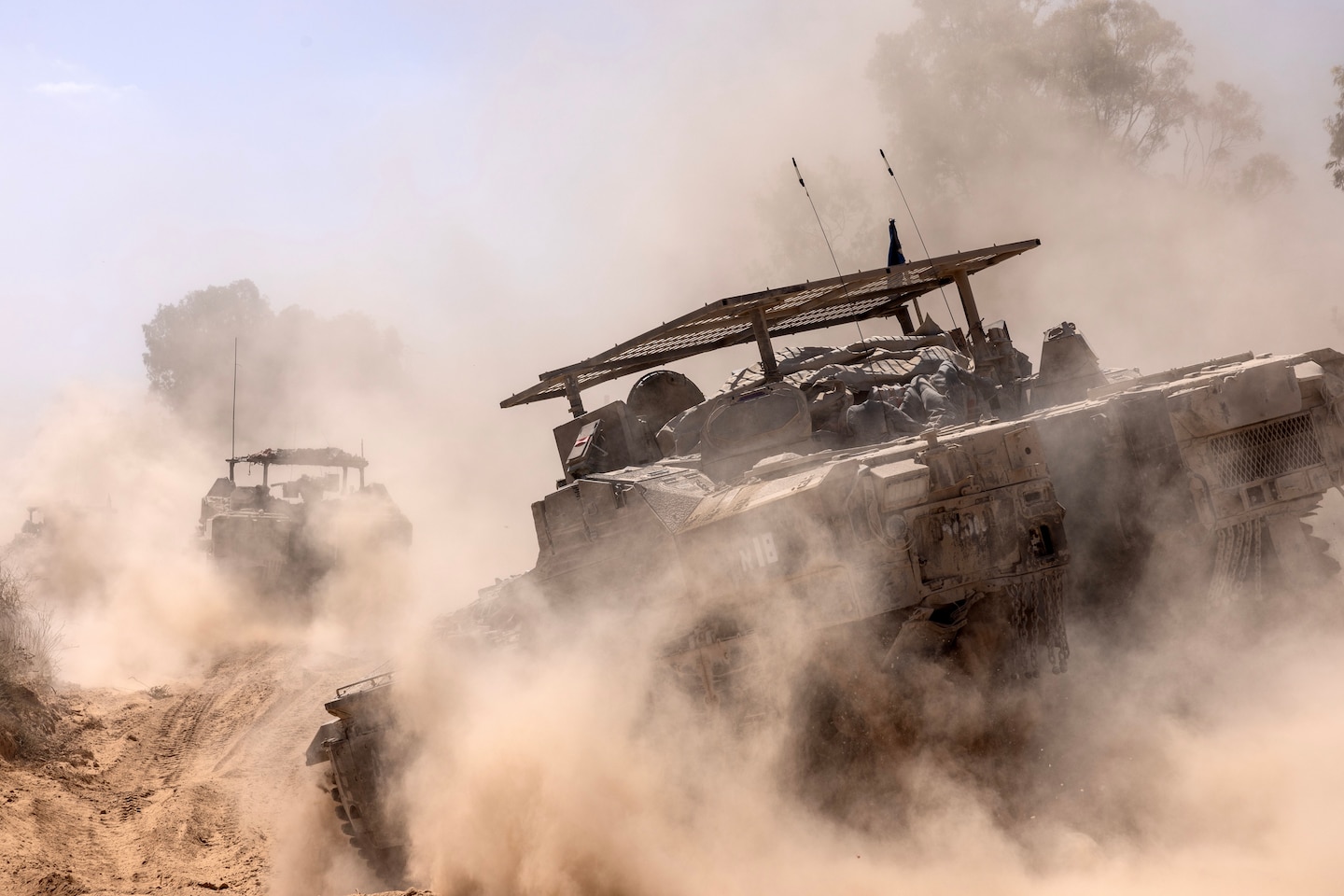Gaza’s remaining hospitals, health centers and oxygen stations will stop working within 48 hours as the fuel needed to operate generators runs out, Gaza’s Health Ministry said in a statement shared to Telegram at noon local time Sunday.
Many of Gaza’s medical facilities have been damaged, raided or evacuated since Oct. 7. Israel has made hospitals a key target of its military campaign, alleging Hamas uses them for militant activity.
UNRWA, the U.N. agency for Palestinian refugees, said last week that a “severe shortage of medicine & fuel” was delaying lifesaving operations by its teams inside the enclave. The U.N. Office for the Coordination of Humanitarian Affairs (OCHA) warned Friday that the lack of medicine and fuel “has forced aid organizations to scale back their services.”
Fuel shortages in Gaza also mean water sanitation and hygiene services are “hanging by a thread,” OCHA added.
Rabih Torbay, CEO of the aid organization Project Hope, said his teams were “minimizing movements to conserve fuel.”
GET CAUGHT UP
Stories to keep you informed
“Hospital generators are running out, and our team is desperately trying to get some so the surgeries don’t stop,” he said.
Meanwhile, Israeli forces continue to operate in the Shejaiya neighborhood of Gaza City, the Israel Defense Forces said Sunday. Last week, the IDF ordered residents to evacuate the densely packed area, citing the presence of militants, as strikes intensified. OCHA said Friday that between 60,000 and 80,000 people had been displaced as a result.
Israel’s military said it killed “dozens” of militants in “close-quarters combat and with aerial fire support,” and raided Hamas hideouts and weapons warehouses.
In Rafah, in the south, Israeli soldiers discovered “several significant tunnel shafts” and destroyed a rocket launch site, the IDF said.
“This is a difficult fight that is being waged above ground, sometimes in hand-to-hand combat, and below ground as well,” Prime Minister Benjamin Netanyahu said during a government meeting Sunday, vowing “absolute victory over Hamas.”
Here’s what else to know
Thousands of ultra-Orthodox Jews gathered in Jerusalem on Sunday night to protest last week’s Israeli Supreme Court ruling that yeshiva students be conscripted into the Israeli military. Protesters lobbed rocks at police and held signs that read, “We will not sacrifice our children on the altar of Zionism.” Ultra-Orthodox parties have threatened to withdraw from Netanyahu’s government if he fails to find a workaround, which could lead to the collapse of his coalition.
Lebanon’s Hezbollah militant group said Sunday it targeted a command headquarters in the Beit Hillel barracks in northern Israel. The Israeli military later said that sirens sounded in the area after a launch was “identified crossing into Israeli territory and falling in an open area.” No injuries or damage were reported, the IDF said.
Six people, including children, were killed in an Israeli strike on a family home in the southern Gaza city of Rafah, according to WAFA, the official Palestinian news agency. The IDF did not immediately respond to a request for comment on the strike.
Hamas official Osama Hamdan accused Israel of holding up cease-fire negotiations, adding in a news conference Saturday that the group’s officials “follow with regret the position of the American administration, which insists on holding Hamas responsible for obstructing reaching an agreement.” The White House has urged Hamas accept the proposal. Netanyahu on Sunday said Hamas “is the only obstacle to the release of our hostages,” though he said last week that he would only accept a partial deal that would free some hostages but allow Israel to continue the war.
Far-right Israeli Finance Minister Bezalel Smotrich on Sunday defended a government decision to expand Israel’s footprint in the West Bank. He said he intended to prevent the establishment of a Palestinian state, which he said would be “an immediate, existential danger to the state of Israel.” Israel’s security cabinet on Thursday approved the legalization of five West Bank outposts as well as sanctions against Palestinian Authority officials, Smotrich said in a statement. Most countries consider Israeli settlements in the West Bank to be illegal under international law.
An Israeli airstrike Sunday targeted the home of relatives of the militant commander known as Abu Shujaa in the Nur al-Shams refugee camp, in the West Bank town of Tulkarm. Abu Shujaa is the top commander of the Islamic Jihad-affiliated Tulkarm battalion. One person was killed and five injured in the attack, according to Palestinian health authorities.
At least 37,877 people have been killed and 86,969 injured in Gaza since the war started, according to the Gaza Health Ministry. It does not distinguish between civilians and combatants but says the majority of the dead are women and children. Israel estimates that about 1,200 people were killed in Hamas’s Oct. 7 attack, including more than 300 soldiers, and it says 316 soldiers have been killed since the start of its military operations in Gaza.
Alon Rom and Suzan Haidamous contributed to this report.

